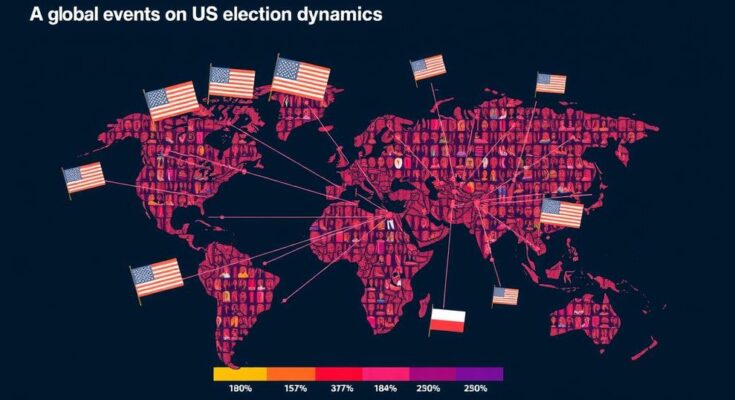The Gaza conflict is significantly impacting the U.S. presidential election, with Arab American voters typically loyal to the Democratic Party now leaning towards Trump due to the Biden administration’s support for military actions in Gaza. This shift could alter the election’s dynamics, causing anxiety within the Democratic Party as it seeks to maintain its voter base while addressing the humanitarian crisis in the region.
In the run-up to the United States presidential election, the conflict in Gaza has become a crucial factor influencing voter sentiment. As the Biden administration continues to express support for military actions in Gaza, a notable shift is occurring among Arab American voters, who traditionally align with the Democratic Party. Many of these voters are now gravitating towards former President Donald Trump, prompting concern and anxiety within the Democratic Party apparatus. The political landscape remains exceedingly close as the election approaches, with predictions uncertain and polling suggesting a divided electorate. Critics within the party fear that Biden’s stance may alienate crucial voter demographics, highlighting the delicate balance he must strike to maintain support while addressing international humanitarian concerns related to the ongoing conflict in the region. Several contributors underscore the complexity of the situation, with political analysts and supporters from both sides weighing in on the potential implications this shift could have not only for the election but also for broader geopolitical issues, including the wars in Gaza, Ukraine, and Sudan. The Democratic Party’s future electoral strategies may need to recalibrate in light of these shifting loyalties among Arab American voters, which could redefine key battleground states.
The war in Gaza has escalated significantly, prompting serious humanitarian concerns and stirring political responses domestically within the United States. Historically, Arab American voters have leaned Democratic due to their alignment with progressive values. However, the current administration’s explicit support for Israel’s military actions has caused disillusionment among this voter bloc, leading them to reconsider their political affiliations. This shift could have significant ramifications for the upcoming presidential election, especially as traditional voting patterns are called into question. The election cycle has emerged against a backdrop of heightened international tensions, further complicating the electorate’s decision-making process based on not only domestic policies but also foreign affairs.
The implications of the Gaza conflict on the United States presidential election are profound, potentially reshaping voter alliances and influencing the broader political landscape. With shifting perspectives among Arab American voters, the Democratic Party may face formidable challenges in retaining crucial support. As the electoral outcome hangs in the balance, both parties must navigate this delicate terrain, balancing domestic electoral strategies against the backdrop of ongoing international conflicts that resonate with their voter bases.
Original Source: www.aljazeera.com




